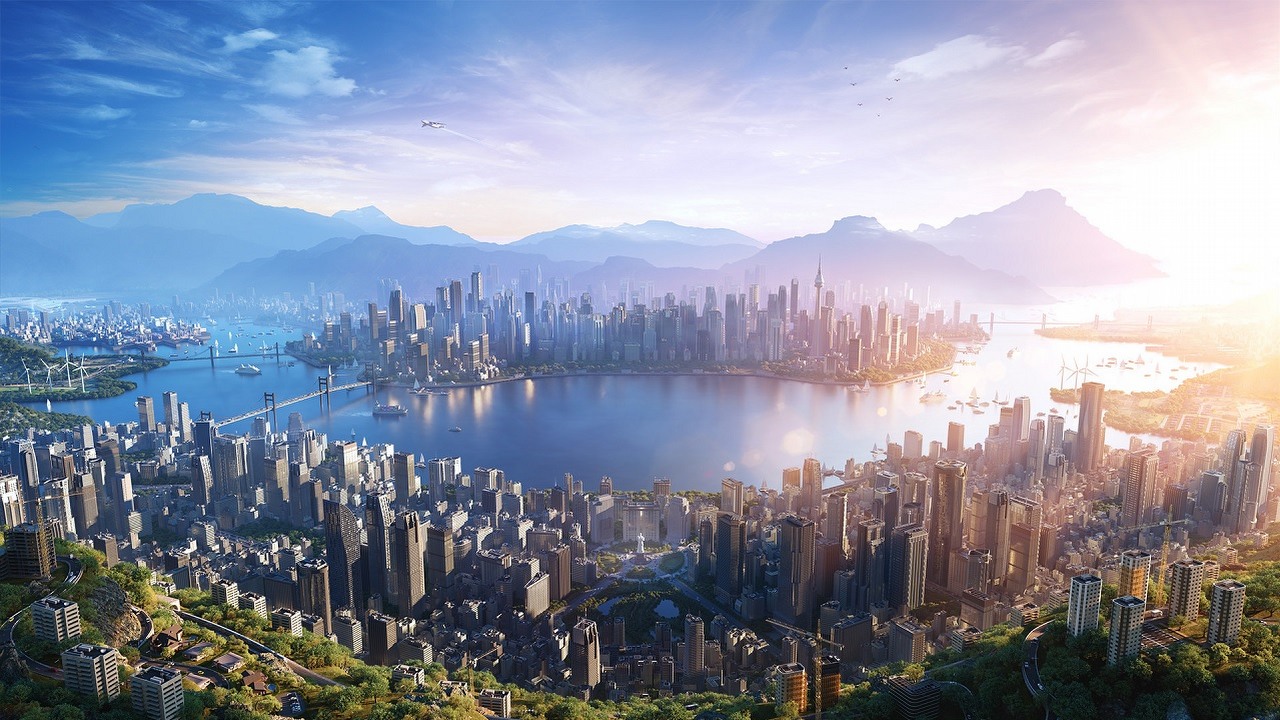Cities Skylines 2 Would've Been Brilliant If Not For Its Abysmal Condition - First Reviews
Cities: Skylines 2 has received a lot of high marks in reviews. Nevertheless, in terms of optimization, the game has huge problems. They are almost as big as the cities we will be able to build, shown in the launch trailer of this city builder.

We already know this and that about the quality of Cities: Skylines II, scheduled to debut in five days. This is because today the embargo on reviews of Colossal Order's new game has been lifted.
It seems that the crowning grades strongly depend on whether journalists turned a blind eye to technical issues and optimization. Our text can be found below.
Cities: Skylines 2 - selected ratings
- TRG - 10/10
- Noisy Pixel - 9/10
- But Why Tho? - 9/10
- God is a Geek - 8.5/10
- GamePressure.com
- Shacknews - 8/10
- VG247 - 8/10
- VideoGamer - 8/10
- TheGamer - 8/10
- Gamereactor UK - 8/10
- PC Gamer - 77/100
- GameWatcher - 7.5/10
- Game Informer - 7.5/10
- PCGamesN - 7/10
- GRYOnline.pl - 6/10
- IGN - 6/10
- GamesRadar - 4/10
- Metascore - 77/100 (based on 36 reviews)
Sequel as heck
The general tone of most reviews is that there is more to the game than it being the first Cities: Skylines dressed up in new clothes. The new game is growing into a sequel in every aspect, adding and expanding many systems. According to some, building cities is just as enjoyable as in the original, while others believe it is even more fun.
At the same time, the developers have managed to make the game a little less complicated and more intuitive than the prequel, so that new players should be able to start playing without too many problems. This is helped, for example, by a significantly improved interface, adapted to modern standards.
Is this beta?
Maliciously, however, it can be said that the low "entry threshold" of Cities: Skylines II is partly due to the fact that the game is devoid of many of the mechanics known from its predecessor. In at least a few reviews you can read that it needs DLCs and mods - only then will it become a brilliant city builder, the potential for which is already there.
However, this does not change the fact that when interacting with the second installment, many reviewers had the impression of playing a beta version. Some of the new solutions reportedly don't work very well, e.g. division into districts. The audiovisuals evoked mixed feelings in the critics - for some it was fine, while others did not like it at all.
Above all, however, the game has major technical and optimization issues. Suffice it to say that the system requirements, which we learned in June 2023, seem to be nowhere near the actual ones - to play Cities: Skylines II you need a much more powerful PC.
If you have one, and you loved the forst game outright, you should also have fun with the sequel. However, if the original hasn't bored you yet, it's probably better to stick with it for now - at least until the developers release some updates. The eventuality remains, of course, to check out the game as part of the PC Game Pass and Xbox Game Pass Ultimate, which it will hit on the day of release.
"If you can dream it, you can build it."
There is no doubt that Colossal Order had big ambitions. This conclusion resounds from both reviews and the subsequent materials the developers are releasing. A good example of this is the launch trailer released a few hours ago.
Small, sleepy towns and huge agglomerations, modeled on or overshadowing the world's largest metropolises. Beautiful settlements for a limited number of residents and those that focus on maximum functionality to settle masses of people. New trailer of Cities: Skylines II tries to convince us that in the upcoming game by Colossal Order we will be able to build everything we can dream of.
Balance changes
The above footage is accompanied by a rather long entry in the developer's diary, from which we learn how the developers approached the balancing of individual elements of Cities: Skylines II. This issue is discussed in four examples.
- Government subsidies will allow for smooth progress at the beginning of the game. The funds received will make it easier for developing cities to cover current costs. As the number of income sources increases, the subsidies will begin to decrease until they eventually stop flowing.
- In Cities: Skylines II reaching successive development milestones will require earning a certain number of experience points and not - like in the first game - to reach a set population limit. XP will be awarded for creating buildings, streets, etc. This will make it easier to design small cities as despite their limited size they will be able to meet all the goals the game will set. We just have to be careful not to overdo it with the pace at which we develop them (just building roads can provide us with the XP needed to reach the next milestone).
- The stats of buildings are to regulate their functionality even more than in the original. For example: elementary schools will be limited in capacity and scope (this will reflect the reality that individual city districts have their own "elementary schools"). The latter provides well-being (a kind of bonus) for families with children. If any live too far from the school, they may want to move closer to it - this too is inspired by reality - to gain this bonus.
- In Cities: Skylines II fuel will be part of the operating costs of some power plants - so there will be a need to create different types of them (you can find more information on resources here). A wind turbine is cheap, provides clean energy, requires no fuel and generates no pollution, only noise, but will prove insufficient for larger cities. A coal power plant, on the other hand, is expensive, takes up a lot of space, heavily pollutes the soil and air and consumes fuel, but it is also very efficient and provides jobs for many people.
The question remains how many GB of RAM a PC will actually need to have for us to enjoy those dreamed of giant metropolises, because player concerns related to optimization have been confirmed in the reviews. It can be assumed that more than the 16 GB of RAM stated in the system requirements will be necessary, apparently deliberately not specifying what quality gameplay this configuration will allow for. Recall that, in extreme cases, already the first game had problems if we didn't run it on a PC with 64 GB of RAM.
Cities: Skylines II will be released on PC on October 24 (in five days). As mentioned, the title will also be available on PC Game Pass and Xbox Game Pass Ultimate.. The PS5 and XSX/S versions of the game have been delayed - presumably due to optimization issues (the official reason is "the desire to provide the best possible experience") - and will not come out until spring 2024.
- Cities: Skylines 2 found a way to avoid another wave of death after changes in new update
- Cities: Skylines follows HoI4 and EU4 and receive a paid subscription. First and second installments of the city builder also gets some new features
- Massive Cities: Skylines 2 update expands homelessness system to mimic real life. Colossal Order also adds difficulty levels and improves traffic
0

Author: Hubert Sledziewski
Has been writing professionally since 2016. He joined Gamepressure.com five years later - although he has known the service since he had access to the internet - to combine his love for words and games. Deals mainly with news and journalism. A sociologist by education, a gamer by passion. He started his gaming adventure at the age of four - with a Pegasus. Currently, prefers PC and demanding RPGs, but does not shy away from consoles or other genres. When he's not playing or writing, he enjoys reading, watching series (less often movies) and Premier League matches, listening to heavy music, and also walking the dog. Almost uncritically loves the work of Stephen King. Does not abandon plans to follow in his footsteps. However, he keeps his first "literary achievements" locked away deep in a drawer.
Latest News
- Elite Mod lets you play the Tau faction in Warhammer 40K: Dawn of War 2
- Huge Marvel Adventures mod now with new superheroes, including Sentry
- Butcher's Summit, an impressive free diselpunk FPS, has been released
- Free FPS on Half Life engine gets big update
- On February 3, gaming history could change forever. Red Dead Redemption 2 one step away from a major achievement


